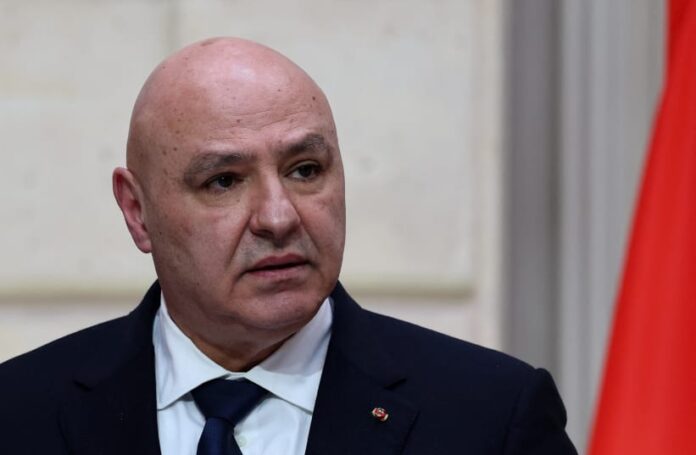Lebanese President Joseph Aoun has expressed a commitment to centralizing all weapons under the control of the state by the end of 2025, emphasizing the need for dialogue with Hezbollah to achieve this goal.
In a recent interview with Al-Araby Al-Jadeed ahead of his official visit to Qatar, Aoun underscored the complexity of the issue but confirmed that efforts to disarm the militant group were a priority for the Lebanese government.
Aoun explained that while the decision to centralize arms within state institutions had been made, the mechanisms for implementation were still being worked out.
He stated that discussions with Hezbollah were ongoing and that the government preferred dialogue over confrontation. However, he warned that any approach to disarming Hezbollah must avoid triggering internal conflicts or exacerbating sectarian tensions within Lebanon.
Rejecting proposals to integrate Hezbollah into the Lebanese military as a separate unit, similar to the model used by the Popular Mobilization Forces (PMF) in Iraq, Aoun suggested that individual Hezbollah members could apply to join the Lebanese Armed Forces through official recruitment channels.
“We do not intend to replicate the PMF model,” Aoun said, adding that former members of various Lebanese factions who had joined the army after the civil war had undergone integration training, a path open to Hezbollah members as well.
Despite the volatile security environment in southern Lebanon, where Hezbollah maintains a strong presence, Aoun praised the group’s restraint in recent months, noting that Hezbollah had avoided further escalation despite Israeli airstrikes and the potential for cross-border clashes.
He confirmed that Lebanese forces had successfully sealed tunnels and destroyed weapons caches belonging to the group, particularly in the south and the Beqaa Valley.
Aoun also addressed the recent rocket attacks on Israel, revealing that Lebanese authorities had identified fingerprints linked to the launches and were in the process of investigating the suspects.
He indicated that suspects were in custody, and if they were Lebanese nationals, their identities would be disclosed soon.
The president reiterated that the Lebanese army was operating independently, even in areas heavily influenced by Hezbollah, with additional troops being deployed to the south to increase security.
While acknowledging U.S. pressure to expedite Hezbollah’s disarmament, Aoun emphasized that the issue must be handled internally, reflecting the sovereignty of Lebanon.
He pointed out that Hezbollah’s weapons were partly a response to Israel’s continued occupation of parts of southern Lebanon and the detention of Lebanese prisoners.
Aoun stated that he had conveyed to U.S. officials, including envoy Morgan Ortagus, that Lebanon would not seek to remove Hezbollah’s arms through external pressure or force, but rather through internal dialogue to avoid a civil war.
On the matter of negotiations with Israel, Aoun expressed openness to future talks on land boundary demarcation, following the framework established by the U.S.-mediated maritime agreement.
However, he reiterated Lebanon’s stance on the Arab Peace Initiative, maintaining that normalization with Israel was not on the table under current conditions.
Aoun’s visit to Qatar marks a crucial step in bolstering Lebanon’s economy and military capabilities, with Qatar agreeing to continue its financial support for the Lebanese army.
Aoun also highlighted ongoing reform efforts, including key appointments within the security and judicial sectors, and emphasized the importance of passing economic legislation tied to IMF requirements.
In terms of internal politics, Aoun stressed unity with Prime Minister Nawaf Salam and Parliament Speaker Nabih Berri on the matter of arms control, emphasizing the importance of upholding the state’s exclusive authority over weaponry.

